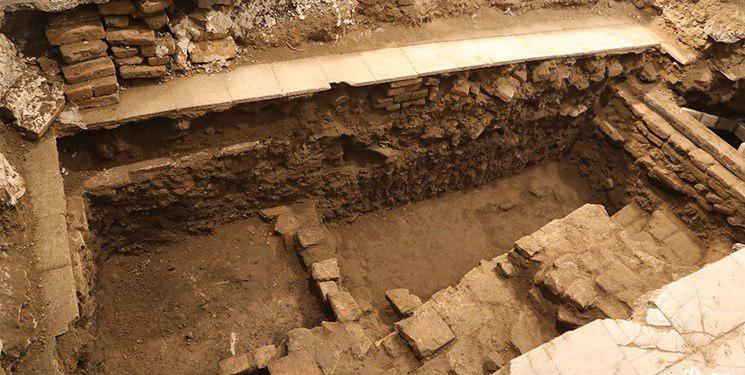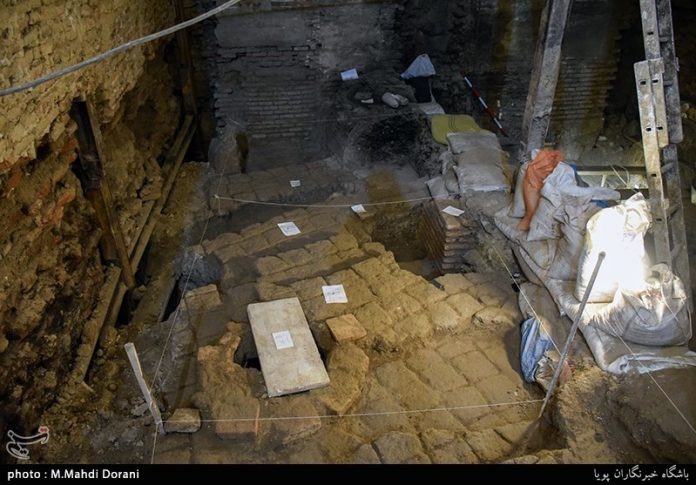
Tehran’s First Fortification Unearthed in Grand Bazaar

The pieces were discovered when construction workers were excavating an old
store in Hazrati Bazaar.
"About two months ago, the owner of an old store in Hazrati Bazaar in Molavi
Street found some pieces of earthenware while excavating his store,” a report
said.
Tehran municipality never makes an inquiry from the Cultural Heritage,
Handicrafts and Tourism Organization of Iran to issue excavation permission. Now
with the finding of the pieces as well as parts of human bones, the ICHTO has
stepped into the fray to preserve the pieces.
Since then the archaeologists of the organization have been involved in
unearthing and striding the historical pieces.
According to the Head of the Archeology Department of the ICHTO, based on
studies conducted on numerous historical texts as well as reports left by the
tourists from Qajar dynasty, it seems the fortofication unearthed in Hazrati
Bazaar belongs to the Shāh Abdol-Azīm Shrine, located in Rey, Iran. A descendant
of Prophet Muhammad (PBUH), he was entombed there after his death in the 9th
century.
The ICHTO official also stressed this is the first time that some architecture
pieces from the Safavid era are unearthed in Tehran.
In an interview with Fars news agency, he went on to say that the main findings
include pieces of earthenware which are highly helpful in historical studies.
The pieces have already been transferred to a research centre for further
investigations.

Elaborating on Hazrati Bazaar excavation, he said there are also other
historical pieces including some glass pieces and tiles from various historical
eras.
The excavation was conducted in the basement of a 80-metre store. Efforts are
underway, the official said, to turn the store into a museum to preserve the
historical pieces and attract more tourists.
Source:IFP















